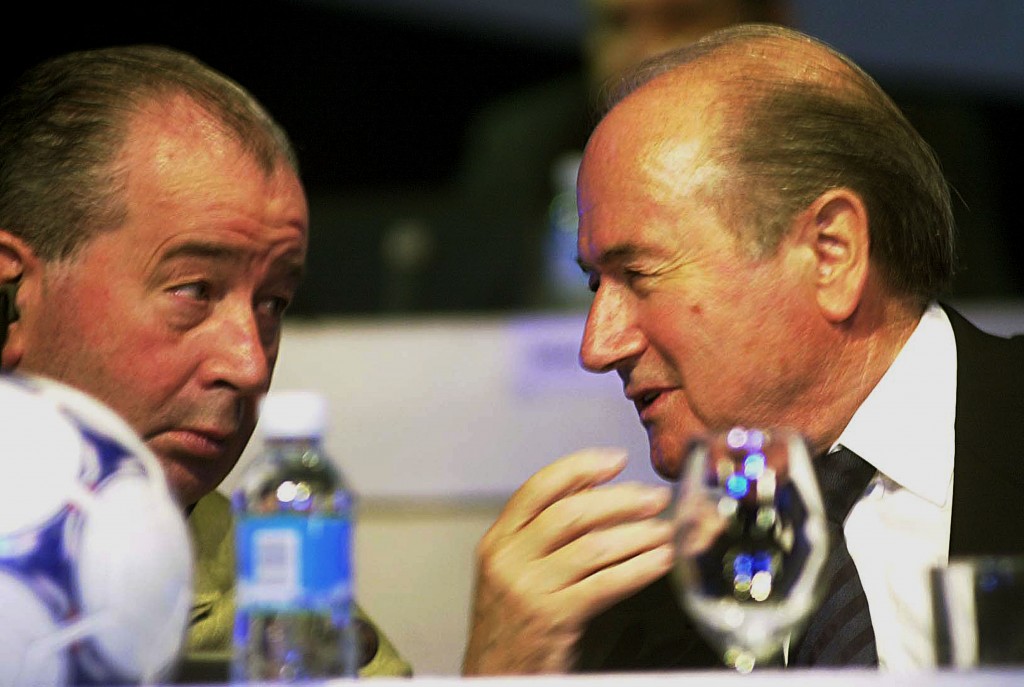The second-most powerful man in soccer passes away aged 82
Julio Humberto Grondona, FIFA senior vice-president, was for the past few decades the second-most powerful man in world soccer.
A key ally and “great friend” of FIFA President Sepp Blatter, Grondona was an important figure in the organization, which has faced criticism of late for its huge cash reserves, focus on marketing sponsors and inability to fight corruption. Blatter, who has faced repeated calls to step down as leader having led FIFA since 1998, would’ve been one of the first people notified after Grondona passed away yesterday.
As the news broke, he tweeted his feelings almost immediately: “Very sad for the loss of a great friend.” He extended his statement on FIFA’s website: “I feel a great personal sense of loss, because he was a lifelong friend. But it is also a huge blow for FIFA as an organization, as he was one of its key figures.”
The two worked closely together over the years. Grondona, who was regarded as a key dealmaker in the organization, has sat on FIFA’s executive committee since 1988 and both have been stalwarts at the top of soccer’s governing body for years.
Without the Argentine, Blatter — who has been dogged by allegations of corruption over the years — will perhaps feel a bit exposed. Critics of the FIFA head will hope he will now face a challenge to his leadership.
Grondona’s rise up the ranks was somewhat surprising considering his lack of English, football’s dominant language. He often admitted he only spoke Spanish but famous said he had an “advantage” — he spoke the “language of football.”
Money man
Grondona also specialized in another area — he was FIFA’s “money man,” thanks to his position as head of FIFA’s finance committee, effectively meaning he was responsible the world body’s cashflow.
It’s in this area that soccer’s world body has faced a lot of criticism, especially regarding FIFA’s demand that World Cup profits be allowed to leave the country tax-free. FIFA has also been dogged repeatedly by corruption allegations, with many claims levelled at the Argentine.
From the 1980s onwards, there were three fellow South Americans at the top of FIFA — Joao Havelange, Ricardo Teixeira and Nicolas Leoz. All were found guilty in 2013 of taking bribes from marketing partners, but Grondona avoided being touched by the scandal. The Argentine is also believed to have voted in favour of Qatar hosting the 2022 World Cup, with rumours of the Arab state having lent money to the AFA in 2009.
So what now for FIFA, and for the AFA? Nominally, the weight Argentina carries in FIFA should not change — the vice-presidency is for the head of the AFA, not Grondona personally, but having been around for so long, it’s unlikely his successor will have anywhere near the same influence.
When pressed by FIFA a few years ago, Grondona unsurprisingly said his memorable match was the 1986 World Cup final in Mexico. Argentina, of course, defeated West Germany 3-2. Just three weeks ago, Grondona sat in the Maracanã, hoping that Argentina would once again repeat their success against German opposition.
Despite having told colleagues that he planned to step down from FIFA in 2015, his passing still surprised the world of soccer. He leaves a gaping hole in the organization’s leadership — and Blatter, more than anyone, will be regretting the loss of a key ally.
@urlgoeshere
Originally published in the Buenos Aires Herald, on Friday, July 31, 2014

